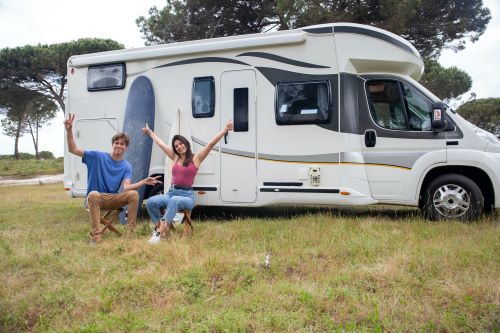
RV Safety Tips for Families
Safety should always be at the forefront of your planning when embarking on a family adventure in a recreational vehicle (RV). RV travel offers the opportunity to create cherished memories on the road, but it also presents unique challenges and considerations. Whether you’re a seasoned RV enthusiast or planning your first trip, these tips can help you prioritize safety and make your family’s RV adventure enjoyable and secure.
Tips for Families Traveling in an RV
The following are a few essential RV safety tips for families:
- Create a detailed plan. Before hitting the road, plan your trip meticulously. Map out your course, including rest stops and campgrounds, and have alternative routes in case of unexpected road closures or detours. Share your itinerary with someone back home in case of emergencies.
- Have your RV inspected. Regular RV maintenance is essential. Ensure that your vehicle is in good working order. Pay special attention to brakes, tires, and the engine. An RV breakdown on the highway can be dangerous, so preventive maintenance is crucial.
- Distribute weight properly within the RV. Overloading one side or the rear can make the RV unstable and lead to accidents. To prevent swaying and instability, follow manufacturer recommendations for weight distribution and use sway bars or weight distribution hitches when necessary.
- Make sure child safety seats are installed correctly. Ensure family members are securely fastened in their seats, especially while driving.
- Consider taking an RV driving course. RVs can be challenging to operate, especially for first-time drivers. Practice in an empty parking lot before hitting the highway to understand the RV’s dimensions and handling.
- Drive the speed limit. Adhere to posted speed limits and slow down when navigating curves or winding roads. An RV’s weight and size make it less agile than a regular car, so cautious driving is critical to safety.
- Watch your blind spots. RVs often have large blind spots, especially at the rear and sides. Use side mirrors, backup cameras, and extra caution when changing lanes or merging onto highways.
- Take regular breaks from driving. Long road trips can be tiring. Ensure you get enough rest before starting your journey and take breaks as needed. Driver fatigue can impair your reaction time and decision-making.
By following these RV safety tips, you’ll enhance your travel experience but also prioritize the well-being of your loved ones. As added protection, it’s also essential to have RV insurance coverage. Contact Miller Insurance Agency to ensure you have adequate coverage for you and your RV.
This blog is intended for informational and educational use only. It is not exhaustive and should not be construed as legal advice. Please contact your insurance professional for further information.
Categories: Recreational Vehicle
